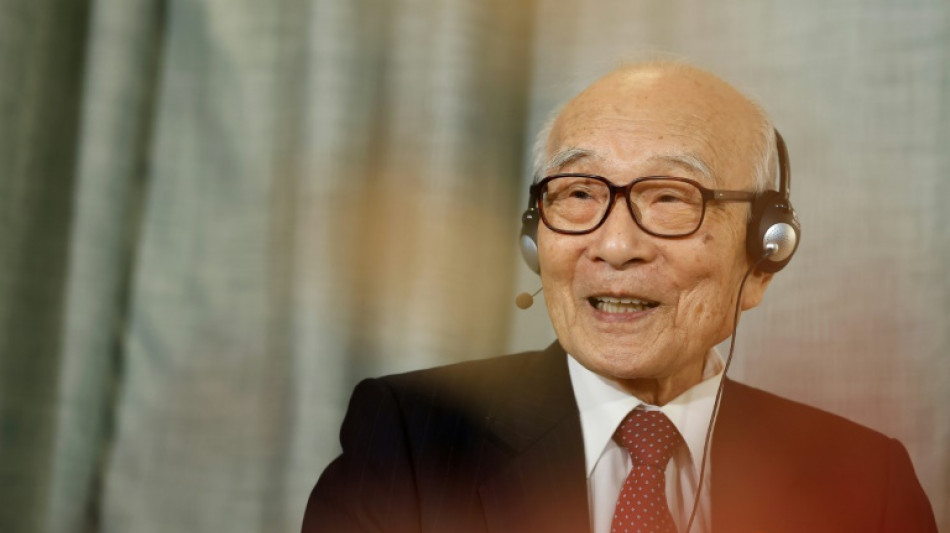
-
 Ebnoutalib scores on debut as Dortmund drop points at Frankfurt
Ebnoutalib scores on debut as Dortmund drop points at Frankfurt
-
Winter Olympic organisers insist ice hockey arena ready despite hole in rink
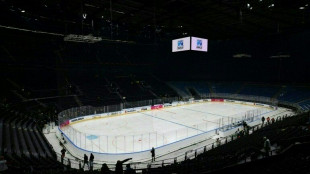
-
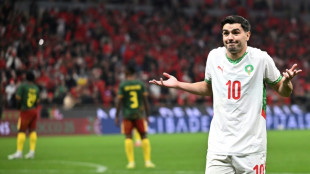 Diaz scores again as hosts Morocco beat Cameroon to reach AFCON semis
Diaz scores again as hosts Morocco beat Cameroon to reach AFCON semis
-
Minneapolis asks to join probe into woman's killing by immigration officer

-
 MLB hands German outfielder Kepler 80-game doping ban
MLB hands German outfielder Kepler 80-game doping ban
-
MLB hands German outfielder Kepler 80-game doing ban
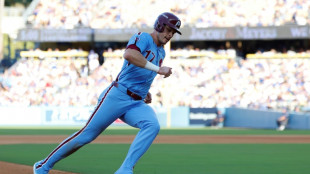
-
 Brazil's Endrick says Lyon 'ideal club' to boost World Cup ambitions
Brazil's Endrick says Lyon 'ideal club' to boost World Cup ambitions
-
Brew, smell, and serve: AI steals the show at CES 2026

-
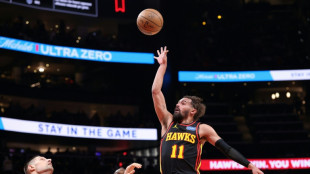 Young 'ecstatic' about NBA move from Hawks to Wizards
Young 'ecstatic' about NBA move from Hawks to Wizards
-
Trump meets oil executives, says $100 bn pledged for Venezuela
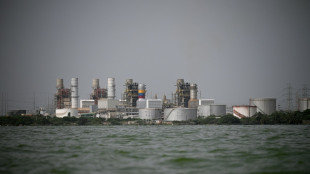
-
 Venezuela says in talks with US to restore diplomatic ties
Venezuela says in talks with US to restore diplomatic ties
-
De Klerk fireworks guide Bengaluru to victory in WPL opener

-
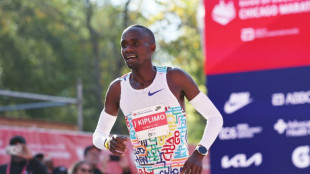 Uganda's Kiplimo seeks third world cross country crown in a row
Uganda's Kiplimo seeks third world cross country crown in a row
-
Olympic ice hockey arena will be ready for Games: IOC director

-
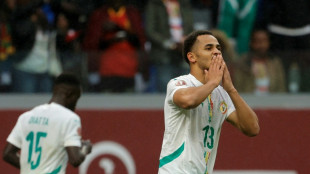 Recalled Ndiaye takes Senegal past 10-man Mali into AFCON semis
Recalled Ndiaye takes Senegal past 10-man Mali into AFCON semis
-
'Devastated' Switzerland grieves New Year inferno victims
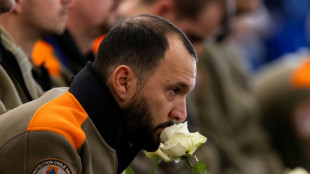
-
 Man pleads guilty to sending 'abhorrent messages' to England women's footballer Carter
Man pleads guilty to sending 'abhorrent messages' to England women's footballer Carter
-
PGA Tour unveils fall slate with Japan, Mexico, Bermuda stops
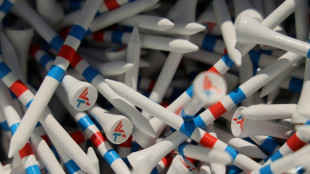
-
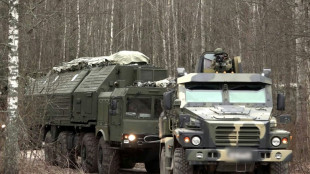 'Unhappy' Putin sends message to West with Ukraine strike on EU border
'Unhappy' Putin sends message to West with Ukraine strike on EU border
-
Fletcher defends United academy after Amorim criticism
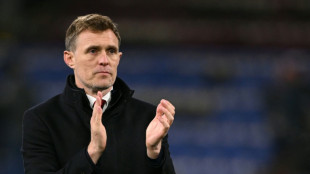
-
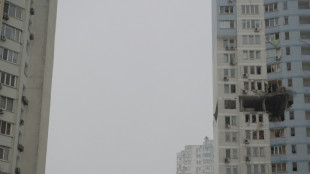 Kyiv mayor calls for temporary evacuation over heating outages
Kyiv mayor calls for temporary evacuation over heating outages
-
Families wait in anguish for prisoners' release in Venezuela
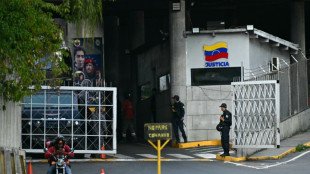
-
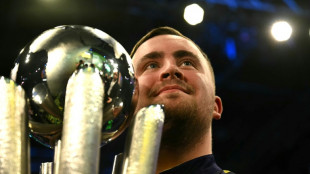 Littler signs reported record £20 million darts deal
Littler signs reported record £20 million darts deal
-
'Devastated' Switzerland grieves deadly New Year fire
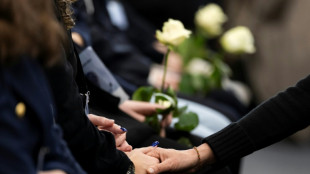
-
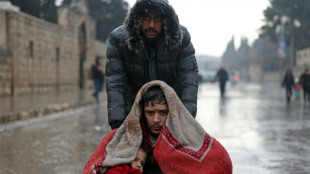 Syria threatens to bomb Kurdish district in Aleppo as fighters refuse to evacuate
Syria threatens to bomb Kurdish district in Aleppo as fighters refuse to evacuate
-
Britain's Princess Catherine 'deeply grateful' after year in cancer remission
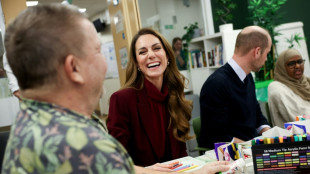
-
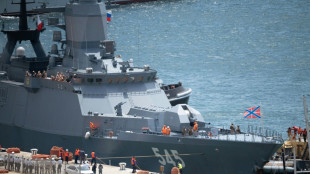 Russia joins Chinese, Iran warships for drills off South Africa
Russia joins Chinese, Iran warships for drills off South Africa
-
40 white roses: shaken mourners remember Swiss fire victims
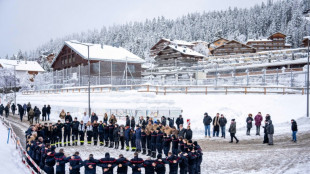
-
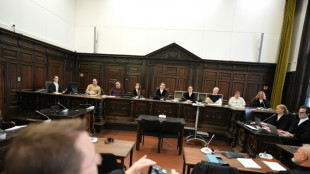 German trial starts of 'White Tiger' online predator
German trial starts of 'White Tiger' online predator
-
Stocks rise despite mixed US jobs data
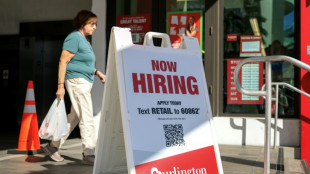
-
 'Palestine 36' director says film is about 'refusal to disappear'
'Palestine 36' director says film is about 'refusal to disappear'
-
US December hiring misses expectations, capping weak 2025
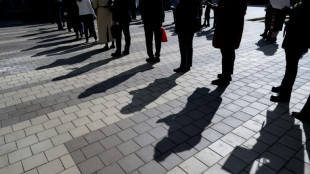
-
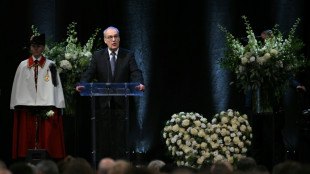 Switzerland 'devastated' by fire tragedy: president
Switzerland 'devastated' by fire tragedy: president
-
Rosenior not scared of challenge at 'world class' Chelsea
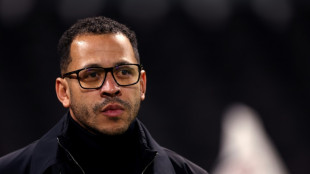
-
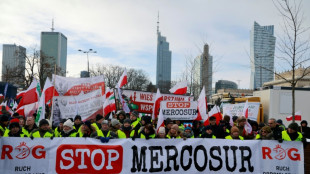 Polish farmers march against Mercosur trade deal
Polish farmers march against Mercosur trade deal
-
Swiatek wins in 58 minutes as Poland reach United Cup semis

-
 Ski great Hirscher pulls out of Olympics, ends season
Ski great Hirscher pulls out of Olympics, ends season
-
'War is back in vogue,' Pope Leo says
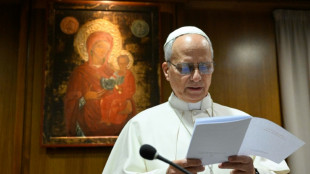
-
 Storms pummel northern Europe causing travel mayhem and power cuts
Storms pummel northern Europe causing travel mayhem and power cuts
-
France has right to say 'no' to US, Paris says
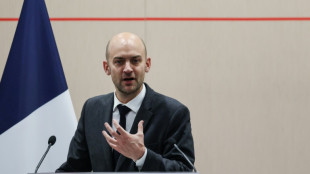
-
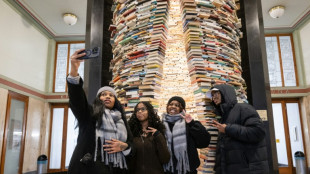 TikTok drives 'bizarre' rush to Prague library's book tower
TikTok drives 'bizarre' rush to Prague library's book tower
-
EU countries override France to greenlight Mercosur trade deal
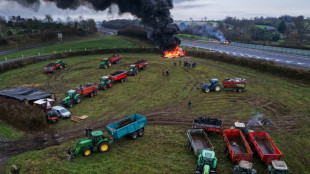
-
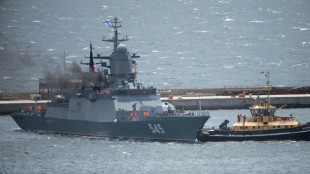 Russia joins Chinese, Iran warships for drills off S.Africa
Russia joins Chinese, Iran warships for drills off S.Africa
-
Stocks rise ahead of US jobs data and key tariffs ruling
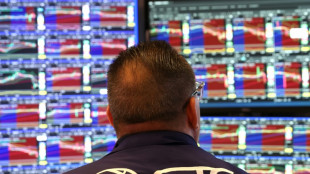
-
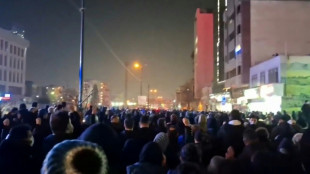 'All are in the streets': Iranians defiant as protests grow
'All are in the streets': Iranians defiant as protests grow
-
Kurdish fighters refuse to leave Syria's Aleppo after truce
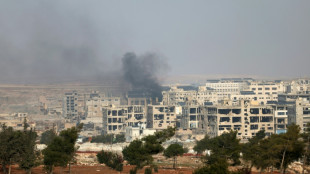
-
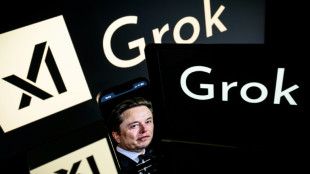 Grok turns off AI image generation for non-payers after nudes backlash
Grok turns off AI image generation for non-payers after nudes backlash
-
Germany factory output jumps but exports disappoint
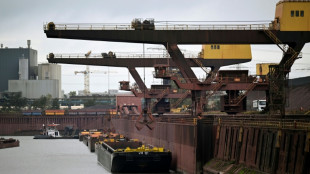
-
 Defiant Khamenei insists 'won't back down' in face of Iran protests
Defiant Khamenei insists 'won't back down' in face of Iran protests
-
Russian strikes cut heat to Kyiv, mayor calls for temporary evacuation
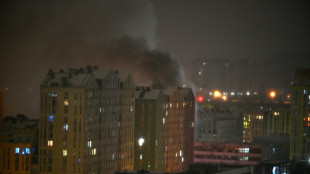

Japan's atomic bomb survivors to accept Nobel Prize in Oslo
This year's Nobel Peace Prize will be presented Tuesday to Japan's atomic bomb survivors' group Nihon Hidankyo, which lobbies against the weapons now resurging as a threat 80 years after the Hiroshima and Nagasaki bombings.
The three co-chairs of Nihon Hidankyo will accept the prestigious award during a ceremony starting at 1:00 pm (1200 GMT) in Oslo's City Hall, at a time when states like Russia increasingly threaten to break the international taboo on the use of nuclear arms.
"Nuclear weapons and humanity cannot co-exist," one of the three co-chairs, Terumi Tanaka, told a press conference on Monday in the Norwegian capital.
"Humanity may come to its end even before climate change brings its devastating impacts," the 92-year-old said.
Nihon Hidankyo works tirelessly to rid the planet of the weapons of mass destruction, with testimonies from survivors of Hiroshima and Nagasaki, known as "hibakusha".
Around 140,000 people were killed in Hiroshima when the United States detonated an atomic bomb over the Japanese city on August 6, 1945.
A further 74,000 were killed by a US nuclear bomb in Nagasaki three days later.
Survivors suffered from radiation sickness and longer-term effects, including elevated risks of cancer.
The bombings, the only times nuclear weapons have been used in history, were the final blow to imperial Japan and its brutal rampage across Asia. It surrendered on August 15, 1945.
Tanaka was 13 when the bomb was dropped on Nagasaki, killing five members of his family.
On Monday, he expressed alarm at the resurgence of nuclear threats and urged Russian President Vladimir Putin to stop brandishing the threat to prevail in the war in Ukraine.
"President Putin, I don't think he truly understands what nuclear weapons are for human beings," he said.
"I don't think he has even thought about this."
- Firing signals -
Putin began making nuclear threats shortly after Russia's full-scale invasion of Ukraine in February 2022. He signed a decree in late November lowering the threshold for using atomic weapons.
Russia has the largest nuclear arsenal in the world.
On November 21, Moscow fired its new Oreshnik hypersonic missile on the Ukrainian city of Dnipro in an escalation of the almost three-year war.
The missile is designed to be equipped with a nuclear warhead, but was not in this case.
Russian Foreign Minister Sergei Lavrov said Thursday that Moscow was ready to use "any means" to defend itself.
"It is crucial for humanity to uphold the nuclear taboo, to stigmatise these weapons as morally unacceptable," the chairman of the Norwegian Nobel Committee, Jorgen Watne Frydnes, said on Monday.
"To threaten with them is one way of reducing the significance of the taboo, and it should not be done," he added.
"And of course, to use them should never be done ever again by any nation on Earth."
North Korea, which has increased its ballistic missile tests, and Iran, which is suspected of developing nuclear weapons though it denies this, are also seen as posing a threat to the West.
Nine countries now have nuclear weapons: Britain, China, France, India, North Korea, Pakistan, Russia, the United States, and, unofficially, Israel.
In 2017, 122 governments negotiated and adopted the historic UN Treaty on the Prohibition of Nuclear Weapons (TPNW), but the text is considered largely symbolic as no nuclear power has signed it.
This year's Nobel prizes in the other disciplines -- medicine, physics, chemistry, literature and economics -- will be awarded at a separate ceremony in Stockholm.
D.Moore--AMWN

